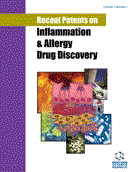Abstract
Apo2 Ligand/TNF Related Apoptosis-Inducing Ligand (Apo2L/TRAIL) is a cytokine that belongs to the TNF superfamilily that was described as capable of inducing apoptosis on tumor cells through activation of the extrinsic pathway in a Fas-independent manner. Besides this function, Apo2L/TRAIL, like other members of the TNF superfamily, has been shown to exert important functions in the immune system. Depending on their status of activation, Apo2L/TRAIL can be expressed by various cells of the immune system such as natural killer cells, T cells, dendritic cells and macrophages and has been implicated in distinct immunoeffector, immunoregulatory functions. Whit respect to pathological conditions, the Apo2L/TRAIL signaling pathway plays an important role in the response to infections, in immune surveillance against tumors, and in autoimmune disorders. Moreover, its implication in suppression of autoimmunity suggests that Apo2L/TRAIL has potential as therapeutic agent not only in cancer but also in autoimmune diseases. In fact, Apo2L/TRAIL-based therapies have been shown effective in various animal models of autoimmune disease. This review summarizes the current knowledge on the biology of Apo2L/TRAIL and its role in the immune system. Finally, patent applications, mainly related with the use of Apo2L/TRAIL as therapeutic agent in several autoimmune diseases, are also summarized.
Keywords: Apo2L, Apoptosis, Autoimmune, Immune response, TRAIL, TRAIL SIGNALING, Expression of Apo2L/TRAIL, T cell regulation, Infectious Diseases, Immunosurveillance
 25
25


















